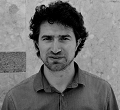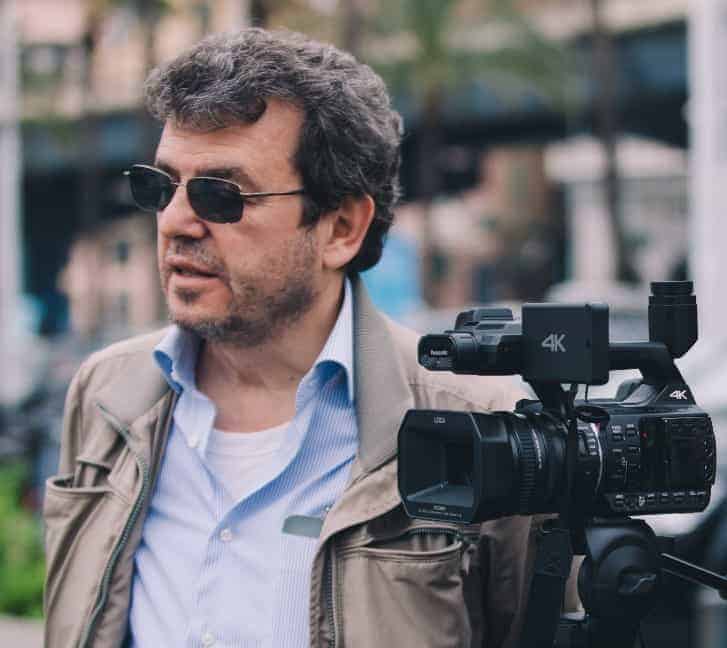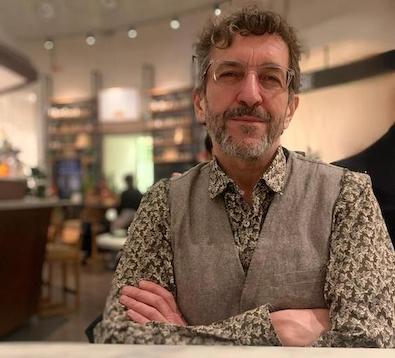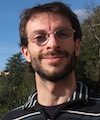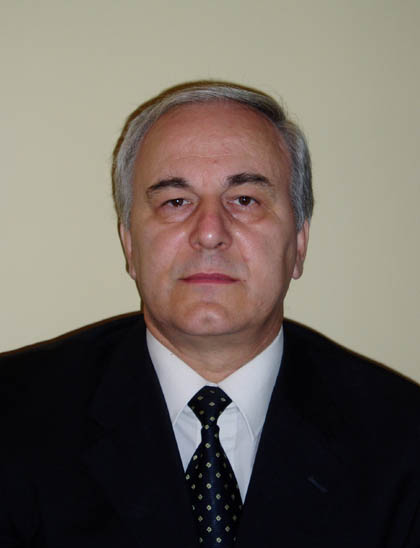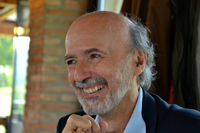Studying at the University of Verona
Here you can find information on the organisational aspects of the Programme, lecture timetables, learning activities and useful contact details for your time at the University, from enrolment to graduation.
Academic calendar
The academic calendar shows the deadlines and scheduled events that are relevant to students, teaching and technical-administrative staff of the University. Public holidays and University closures are also indicated. The academic year normally begins on 1 October each year and ends on 30 September of the following year.
Course calendar
The Academic Calendar sets out the degree programme lecture and exam timetables, as well as the relevant university closure dates..
| Period | From | To |
|---|---|---|
| semestrino IA | Sep 29, 2014 | Nov 15, 2014 |
| Semestrino IB | Nov 17, 2014 | Jan 17, 2015 |
| Semestrino IIA | Feb 23, 2015 | Apr 18, 2015 |
| Semestrino IIB | Apr 20, 2015 | Jun 6, 2015 |
| Session | From | To |
|---|---|---|
| Sessione invernale | Jan 19, 2015 | Feb 21, 2015 |
| Sessione estiva | Jun 8, 2015 | Jul 31, 2015 |
| Sessione autunnale | Aug 31, 2015 | Sep 26, 2015 |
| Session | From | To |
|---|---|---|
| Sessione estiva | Jul 9, 2015 | Jul 9, 2015 |
| Sessione autunnale - I appello | Oct 29, 2015 | Oct 29, 2015 |
| Sessione autunnale - II appello | Dec 17, 2015 | Dec 17, 2015 |
| Sessione invernale straordinaria | Mar 17, 2016 | Mar 17, 2016 |
| Period | From | To |
|---|---|---|
| Festa di Ognissanti | Nov 1, 2014 | Nov 1, 2014 |
| Festa dell'immacolata | Dec 8, 2014 | Dec 8, 2014 |
| VACANZE DI NATALE | Dec 22, 2014 | Jan 6, 2015 |
| Vacanze di Pasqua | Apr 2, 2015 | Apr 7, 2015 |
| Festa della Liberazione | Apr 25, 2015 | Apr 25, 2015 |
| Festa dei Lavoratori | May 1, 2015 | May 1, 2015 |
| Festa del S. Patrono S. Zeno | May 21, 2015 | May 21, 2015 |
| Festa della Repubblica | Jun 2, 2015 | Jun 2, 2015 |
| Vacanze Estive | Aug 10, 2015 | Aug 16, 2015 |
Exam calendar
Exam dates and rounds are managed by the relevant Culture and Civilisation Teaching and Student Services Unit.
To view all the exam sessions available, please use the Exam dashboard on ESSE3.
If you forgot your login details or have problems logging in, please contact the relevant IT HelpDesk, or check the login details recovery web page.
Should you have any doubts or questions, please check the Enrollment FAQs
Academic staff
Cioffi Antonio

Ligas Pierluigi
 pierluigi.ligas@univr.it
pierluigi.ligas@univr.it
 +39 045 802 8408
+39 045 802 8408
 lor.reg@alice.it
lor.reg@alice.it
 domenico.secondulfo@univr.it - domenico.secondulfo3@gmail.com
domenico.secondulfo@univr.it - domenico.secondulfo3@gmail.com
Villani Simone
 simonevillani@tiscali.it
simonevillani@tiscali.it
Study Plan
The Study Plan includes all modules, teaching and learning activities that each student will need to undertake during their time at the University.
Please select your Study Plan based on your enrollment year.
1° Year
| Modules | Credits | TAF | SSD |
|---|
Un insegnamento a scelta tra i seguentiTre insegnamenti a scelta tra i seguentiUn insegnamento a scelta tra i seguentiUno o due insegnamenti a scelta tra i seguenti2° Year activated in the A.Y. 2015/2016
| Modules | Credits | TAF | SSD |
|---|
Un insegnamento a scelta tra i seguentiUn insegnamento a scelta tra i seguenti| Modules | Credits | TAF | SSD |
|---|
Un insegnamento a scelta tra i seguentiTre insegnamenti a scelta tra i seguentiUn insegnamento a scelta tra i seguentiUno o due insegnamenti a scelta tra i seguenti| Modules | Credits | TAF | SSD |
|---|
Un insegnamento a scelta tra i seguentiUn insegnamento a scelta tra i seguenti| Modules | Credits | TAF | SSD |
|---|
Legend | Type of training activity (TTA)
TAF (Type of Educational Activity) All courses and activities are classified into different types of educational activities, indicated by a letter.
Textual analysis, contemporary literature and newspaper writing (m) (2014/2015)
The teaching is organized as follows:
Learning outcomes
Module: LETTERATURA, EDITORIA E GIORNALISMO (M)
-------
The lectures will be focused on the italian literature of the Twentieth Century
Module: ANALISI DEL TESTO E SCRITTURA GIORNALISTICA (M)
-------
providing competences about structural and linguistic analysis of journalistic texts of different origin and destination, as a prerequisite for a professional use of journalistic language.
Program
Module: LETTERATURA, EDITORIA E GIORNALISMO (M)
-------
Prerequisites: Knowledge of the history of italian literature, particularly of the Twentieth Century
Contents of the course: Reading and commenting the text mentioned in the program
For attending and not attending students, is required the reading of following texts:
SERGIO ANTONIELLI, Viaggio nella letteratura italiana contemporanea. A cura di EDOARDO ESPOSITO. Presentazione di GENO PAMPALONI, Milano, Mursia, 1987
LEONARDO SCIASCIA, Fuoco all’anima. Conversazioni con DOMENICO PORZIO, Milano, Mondadori, 1992
ANTONIO TABUCCHI con LUCA CHERICI, Dietro l’arazzo. Conversazione sulla scrittura, Roma, Perrone, 2013
FERDINANDO CAMON, Conversazione con PRIMO LEVI, Parma, Guanda, 2014 [1997 1st. ed.]
Other readings required: ALBERTO MORAVIA, L’uomo come fine, Milano, Bompiani, 1964, 5-9 (Prefazione); LEONARDO SCIASCIA, Cruciverba, Torino, Einaudi, 1983, 282-298 (I paesi dell’Etna), 304-316 (Parigi); PRIMO LEVI, L’altrui mestiere, Einaudi, Torino, 1985, 49-55 (Dello scrivere oscuro), 109-114 (Tradurre ed essere tradotti), 159-163 (Scrivere un romanzo), 234-237 (A un giovane lettore).
Teaching methods: Lectures, seminars and meetings with journalists, writers, publishers
Module: ANALISI DEL TESTO E SCRITTURA GIORNALISTICA (M)
-------
Prerequisites: notions about the particular characteristics of the Italian language, its history, its joints in the contemporary world, its uses in the world of communication.
Contents of the course: characters, components and trends of journalistic language in Italy, with analysis of journalistic texts.
Bibliography:
R. Gualdo, L’italiano dei giornali, Roma, Carocci, 2007.
L. Serianni, Leggere, scrivere, argomentare. Prove ragionate di scrittura, Bari, Laterza, 2013.
M. Dardano, La lingua dei media, in V. Castronovo – N. Tranfaglia (a cura di), La stampa nell’età della TV. Dagli anni Settanta ad oggi, Roma-Bari, Laterza, 2002, pp. 245-275.
I. Bonomi, La lingua dei quotidiani, in I. Bonomi et alii (a cura di), La lingua italiana e i mass-media, Roma, Carocci, 2003, pp. 127-164.
Teaching methods: frontal lessons.
Examination Methods
Module: LETTERATURA, EDITORIA E GIORNALISMO (M)
-------
oral exam
Module: ANALISI DEL TESTO E SCRITTURA GIORNALISTICA (M)
-------
oral examination. Each student has to submit a written essay that contains a brief analysis of a journalistic text agreed with the teacher.
Type D and Type F activities
Modules not yet included
Career prospects
Module/Programme news
News for students
There you will find information, resources and services useful during your time at the University (Student’s exam record, your study plan on ESSE3, Distance Learning courses, university email account, office forms, administrative procedures, etc.). You can log into MyUnivr with your GIA login details: only in this way will you be able to receive notification of all the notices from your teachers and your secretariat via email and soon also via the Univr app.
Graduation
List of theses and work experience proposals
| theses proposals | Research area |
|---|---|
| Laureandi Editoria e Giornalismo: vademecum | Various topics |
| TESI SU COMUNICAZIONE DELL’AGROALIMENTARE | Various topics |
| Stage | Research area |
|---|---|
| Proposte stages - Centro di ricerca Skenè | Various topics |
| TIROCINIO IN GIORNALISMO E SOCIAL MEDIA | Various topics |





